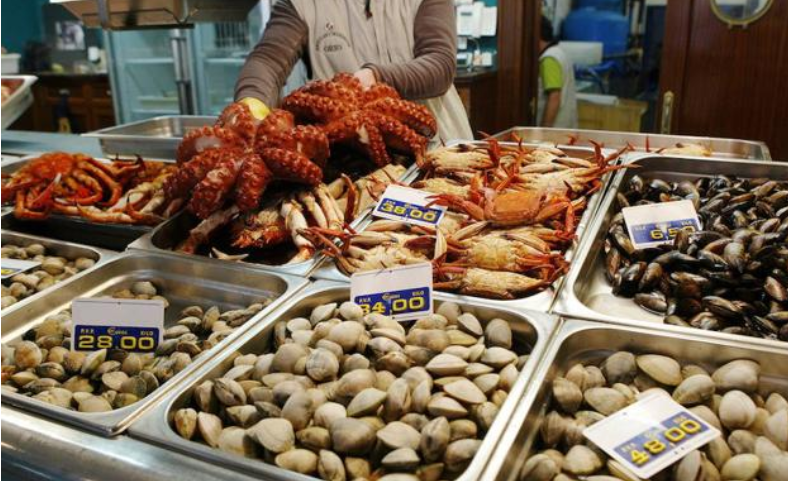Undercurrent News
Matilde Mereghetti
Fish counter in Spain Photo credit: Diario Sur
Record high octopus prices are driving a consolidation process among Spanish players, with private equity firm Portobello Capital’s acquisition of processor Viveros Merimar expected to be closed this week, industry sources in Spain told Undercurrent News.
“A concentration process is ongoing in the market. Portobello is very active in the sector buying [firms] and at the same time wanting to sell Angulas Aguinaga and Iberconsa [Grupo Iberica de Congelados],” one source familiar with the deal told Undercurrent News.
Viveros, which produces and sells cooked octopus, operates the Meripul brand and competes with Angulas Aguinaga in this product. Portobello eyed a deal for the former, to then integrate it into Angulas Aguinaga and expand and diversify its business.
“Merimar is a company that has been developing in the retail sector with a medium quality [octopus] and has been able to enter different levels of supermarkets, selling refrigerated cooked octopus,” the first source noted.
Record-high Morocco octopus prices are forcing some small and medium players out of the market as profit margins have shrunk, sources previously told Undercurrent.
Discefa, another major Spanish player in octopus and owned by private equity GED Capital Development, reported an increase in sales last year but said that higher octopus prices had squeezed its margins.
The GED-owned company is trying to continue little-by-little to find customers in the high-quality niche, although with a greater commercial effort and smaller stocks, the firm’s president, Miguel Peralta, told Undercurrent last week.
The company provides its customers with a 24/48 hour service to maximize support, Peralta pointed out.
Between January-June Discefa’s sales rose 29% year-on-year, especially in Europe and the US, Peralta also said.
Fishing season
Meanwhile, octopus fishing in north Africa started on June 15 in Mauritania and on July 1 in Morocco.
“The quota is a little more than the third part of the winter campaign,” Peralta also said, pointing out that the quota in the two countries might be fully reached by Aug. 15, at the current level of fishing.
Prices have started very high, about 6-7% higher than last December, a third industry source in Spain said. He added that the intention of “Moroccan producers to force [further up] already high prices” seemed unrealistic, considering that “the wholesale market and HORECA [hotel, restaurant, and catering sector] had resented [high prices] and reduced purchases”.
Some companies since last year have been switching from a first quality octopus to second or even third quality, the latter source also noted. In the last three years, southern European octopus buyers have slowly moved towards lower quality, due to their limited purchasing power, sources said.
Octopus, whether fresh or frozen, has become a luxury product in Spain and almost impossible to find in frozen product stores, Diario Sur reported last week.
Many Spanish retailers do not offer octopus to avoid the risk it remains unsold because of the high price, as the selling level to the public rose about 26% compared with the last Spanish season and almost 45% compared with 2016.
Contact the author matilde.mereghetti@undercurrentnews.com





